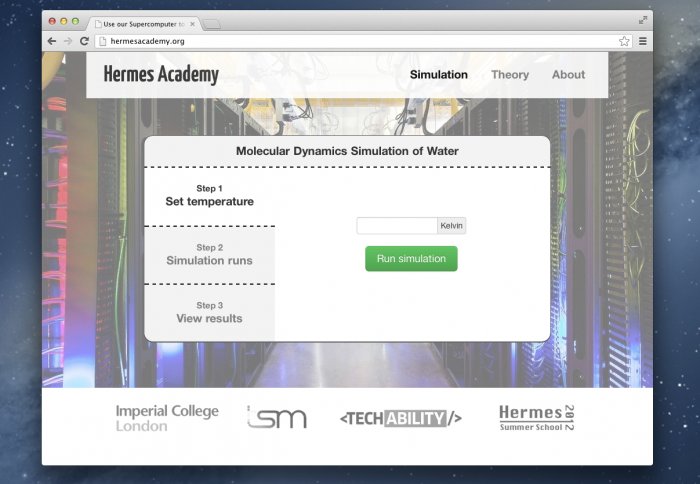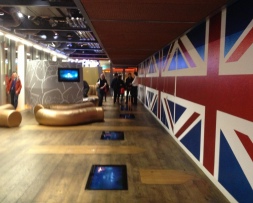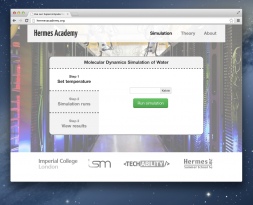CDT student attends Google mentoring programme
by Lucy Stagg

Final year PhD candidate Aeneas Wiener develops new science outreach website for school students at the Google TechAbility mentoring programme 2012.
Over a period of eight weeks, he used the help offered by Google engineers, product managers and marketing specialists to develop a new materials science outreach website. In the following, Aeneas details his experience:

Entrance to Google's Covent Garden offices
“Google mentoring programmes are plentiful. Events such as Summer of Code, CodeF and TechAbility offer amazing opportunities for students interested in technology to develop their careers, network with like-minded peers and work on interesting projects. I have recently had the opportunity to attend a variety of residential career development and mentoring events organised by companies from a range of industries. I can say without a doubt that Google’s TechAbility programme, organised in collaboration with EmployAbility, comes out on top for the following three reasons:
- Mentoring: The programme consists of 8 one-to-one mentoring meetings held either virtually and/or in Google’s London offices. This level of attention is completely unparalleled and enables participants to build a meaningful relationship with their mentor.
- Flexibility: The programme is completely adaptive to the students background and interests .Rather than following a given schedule, attendees are free to propose their own project to work on, conduct mock interview sessions with their mentors and work on professional skills.
- Impact: The above two points cumulate in a real opportunity for impact. the level of support offered by the mentors, together with the flexibility to work on any technology project the student wishes, means that there is enough time to create a fully developed project with lasting impact.
The first one day event at the Google offices at St Giles High Street in Covent Garden set the tone for the programme that awaited us. We were welcomed by senior Google employees to a day packed with interesting lectures about their work. The event was fast paced, but there was also time to chat to people during the breaks and meet Googlers from a variety of backgrounds.
After this introductory day all participants were invited to propose a project that we would want to work on with a mentor. I decided to propose a project related to my PhD. The plan was to put school students in control of a supercomputer, giving them first hand experience with a tool that scientists in my field work with every day. By the end of my project, a web interface would control a powerful research-grade simulation of 500 virtual water molecules at arbitrary temperatures. Using a simple temperature control dial, users would be able to observe the molecular structure of water at different temperatures, from a frozen crystalline lattice at 10 Kelvin to an exploding vapor cloud at 5000 Kelvin.

The Hermes Academy water simulation
The project that I workd on as part of the mentoring programme, now located at hermesacademy.org/water, is at the heart of a trend towards open science. The platform runs on a molecular dynamics simulation that I have set up with help from CDT sdudent David Edmons. By giving the public access to the same research-grade simulation infrastructure that scientists use every day, it is our goal that, going forward, this project will break down some of the barriers that exist between academia and the general public.
Looking back after eight weeks, I would strongly recommend the Google mentoring programme to others. It has been an amazing opportunity that has enabled me to pick up new skills from a mentor working in one of the world’s leading technology companies. The most useful lesson I learned from my mentor was the use of a repeatable product development cycle based on user studies, user flow analysis and wireframes / mockups. It has also given me a welcome excuse to learn new technologies (Python / Django, molecular dynamics simulation package Gromacs, the Amazon EC2 infrastructure, Unix administration) as well as brushing up on some old friends (such as collaborative working through the use of version control software git, the creation of interactive web interfaces using AJAX, and Apache web server administration).”
Aeneas Wiener, April 2013
Article text (excluding photos or graphics) © Imperial College London.
Photos and graphics subject to third party copyright used with permission or © Imperial College London.
Reporter
Lucy Stagg
Faculty of Natural Sciences